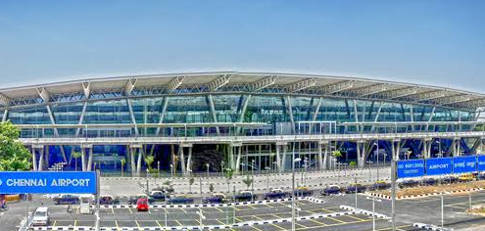
IAMAI - Experts deliberate upon the evolving Crypto Regulatory Framework
Posted on: 15/May/2021 10:44:14 AM

Framing an appropriate regulatory framework for cryptocurrencies and crypto assets continues to be a challenge with countries taking differing approaches to find a solution. India’s leading Cryptocurrency players, represented by IAMAI (Internet and Mobile Association of India) and its Blockchain and Crypto Assets Council (BACC) members, organized a webinar on Friday, 14 May 2021 on the theme, ‘The Evolving Crypto Regulatory Framework - Developments in India and Singapore’ with experts from India and Singapore deliberating on the topic.
Given the scale and diversity, the good governance and regulation of the cryptocurrency ecosystem in India is critical and will give impetus to Government of India’s Digital India vision. The Government of India had earlier indicated that it would take a ‘calibrated approach’ towards digital assets and formulating a Bill on cryptocurrencies. A final decision is yet to be taken.
In this regard, it would be useful to consider the approach of other jurisdictions such as Singapore that has taken a balanced approach with regulations aimed at preventing nefarious activity without impending technology innovation. Following enhancements earlier this year to the Singapore Payment Services Act, any entity that facilitates the transmission, exchange or storage of digital payments tokens also known as cryptocurrencies require a license to operate and are subject to expanded rules and regulations set by the Central Bank of Singapore.
Mr. Nischal Shetty, CEO WazirX said that “There are over 1.5 Crore Indians holding over 1500 Crores worth crypto-assets. WazirX signed up 1.1 Million users and recorded a volume of $5.4 Billion USD in April 2021 alone. India is no longer a niche market, but a rapidly growing finance market. Despite the growth in crypto adoption, India is behind in terms of both regulations as well as number of successful crypto startups. India needs its own crypto unicorns and better regulations, and for this, we must encourage our entrepreneurs to build for crypto.” He further added that “The Indian crypto industry is eager to help the government formulate right regulations so that India can stay competitive with the rest of the world.”
Drawing attention to established cryptocurrency regulatory frameworks from developed economies, Mr. Jaideep Reddy, Leader, Crypto-Assets and Blockchain, Nishith Desai Associates said, “Courts have generally not upheld outright prohibitions where there is a less drastic alternative. The approach of multiple leading jurisdictions shows that effective regulation is possible without resorting to a ban.”
Mr Shetty’s firm WazirX is a member of the Blockchain and Crypto Assets Council (BACC) of the IAMAI.
With a special emphasis on regulation of crypto market in India, Mr. Vivek Kathpalia, Head, Singapore Office and Leader, Technology Law, Nishith Desai Associates, said, “India and Singapore are both emerging as fintech hubs and we hope that regulatioion in India will catch up soon with global best practices”.
Stressing the need for collaborative effort amongst regulators and industry, Mr. Sriram Chakravarthi, Counsel, Rajah & Tann Singapore LLP stated that “in order to create an effective regulatory framework, governments should collaborate with the crypto-industry and representative bodies, and consider international approaches – particularly on the cross-border aspects of crypto-regulation. Consultation and dissemination of information between the government and the industry participants is crucial to determining the most appropriate regulatory framework and supporting innovation.
India needs smart and sensible crypto regulation, which can lead to the financial revolution and contributes to India’s growth story.







